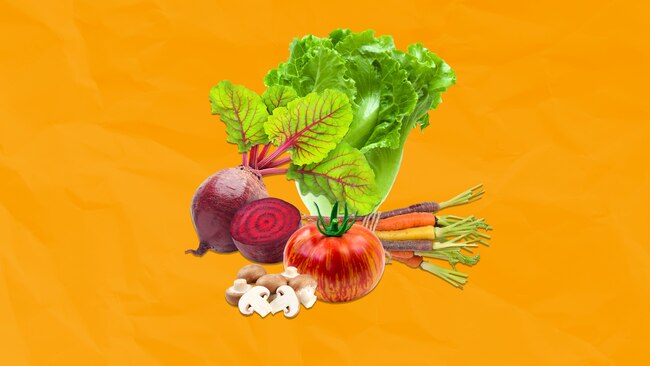How to go vegetarian without damaging your health
According to new research, vegetarians are more likely to fracture their hips than meat-eaters are. So what can they do about it?

Thought cutting back on meat was an automatic fast track to better wellbeing? It may be more complicated than that. Despite being perceived as a healthier option, going full-on veggie will not necessarily bring all the positive outcomes you might expect.
Last week, in a study of more than 26,000 women aged 35-69, researchers at the University of Leeds found that those who followed a vegetarian diet had a 33 per cent higher risk of hip fracture than meat-eaters and pescatarians (who eat fish but not meat).
Professor Janet Cade, leader of the nutritional epidemiology group in the school of food science and nutrition, with her colleagues documented 822 hip fracture cases in the women over roughly 20 years, but after adjustment for factors such as smoking and age, vegetarians were the only group with an elevated risk of breaking a hip bone. “Not everyone in the vegetarian group experienced a fracture, and we need more evidence to be sure which factors are responsible,” Cade says. “But this study is an important step in understanding the potential risk plant-based diets could present to bone health over the long term and what can be done to mitigate those risks.”

Vegetarian diets are more popular than ever. A 2021 YouGov survey has suggested that 2-3 per cent of the UK population is vegan and 5-7 per cent is vegetarian. A well-planned approach can provide all the nutrients needed to stay healthy, and there’s emerging evidence that vegetarians have healthier levels of markers for disease and are at reduced risk of a stroke and type 2 diabetes.
There are pitfalls, however, and it is relatively easy to have lower intakes of nutrients that are linked with bone and muscle health when avoiding meat and dairy. Last year a review in Clinical Nutrition found that following a vegan diet can result in deficiencies in micronutrients including vitamin B12, zinc, calcium and selenium. “Minerals, in particular calcium and phosphorus, make up the vast majority of the mineral content of bone,” Cade says. “And meat, fish and dairy are good sources of these minerals.”


